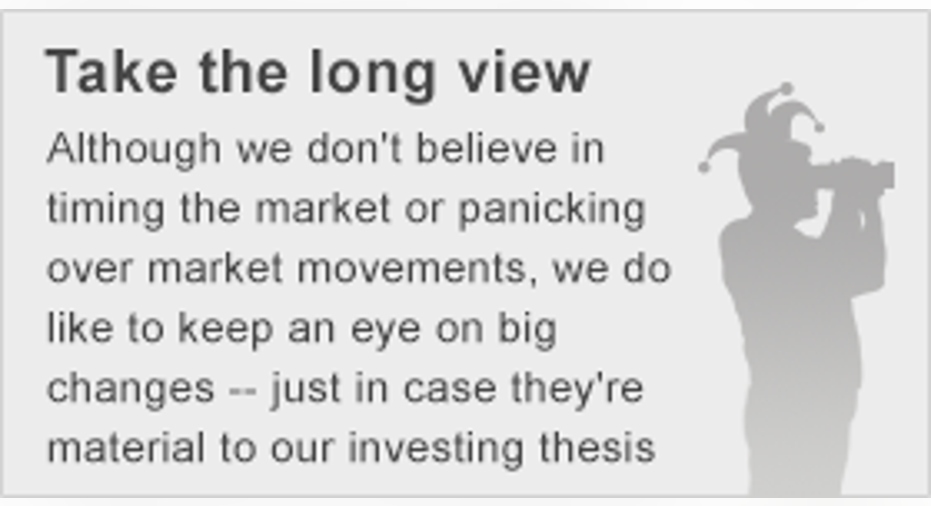What Sent Medivation, Inc.'s Shares Soaring 25.1% In April

SOURCE: FLICKR USER STOCKMONKEYS.COM
What:Following reports that companies eager to expand their presence in oncology could be knocking on the company's door, shares ofMedivation, skyrocketed 25.1% last month, according to data from S&P Global Market Intelligence.
So what: There aren't too many profitable mid sized cancer companies out there and that has led to a flurry of rumors regarding a potential Medivation acquisition.
Last month, those rumors reached a crescendo as Sanofi acknowledged that it had been attempting to wrestle Medivation's board to the negotiating table since March. Unable to accomplish that, Sanofi went public on April 28 with a $9.3 billion bid to acquire Medivation.
While Sanofi notes its offer reflects a significant premium to where Medivation's stock had been trading prior to merger and acquisition speculation, I don't thinkits offer is sufficient to win the votes necessary for this combination to happen.
Frankly, I think the offer undervalues Medivation's Xtandi, a fast-growing prostate cancer medicine that's under evaluation for use in breast cancer patients too. Xtandi won approval for use in the post-chemotherapy metastatic prostate cancer setting in 2012 and in 2014, the FDA expanded Xtandi's label to include its use in pre-chemotherapy patients as well.
Since Xtandi's launch, it has become the most prescribed prostate cancer drug in these indications, generating annualized sales of more than $2 billion. That has me thinking that it could similarly succeed if approved for use in non-metastatic prostate cancer patients. Studies under way are evaluating Xtandi's use in non-metastatic patients and if data is positive, it could significantly increase Xtandi's addressable patient population.
Xtandi could also become used to treat advanced breast cancer patients with specific genetic markers someday. Phase 2 trials are expected to offer up results in the coming 12 months, and if they lead to an eventual approval in breast cancer, it could open the door to tens of thousands of additional patients per year. According to the National Cancer Institute, more than 220,000 patients are diagnosed with breast cancer every year in the U.S. alone.
Now what:Medivation shares Xtandi's rights with Astellas and it's possible that Astellas will want to buy Medivation itself to gain 100% rights to this drug.
Other companies, including Gilead Sciences and Novartis have expressed an interest in expanding their oncology product portfolios. And, AbbVie, has been on the hunt recently, too. All of these companies have deep pockets that could easily digest a deal that's valued at north of $10 billion.
Of course, there's always the possibility that Medivation has no interest in selling at any price. Deals often fall by the wayside, therefore, investors who are interested in owning Medivation should do so because of Xtandi and Medivation's product pipeline, not M&A rumors. Overall, Xtandi's potential in new patient populations could mean billions in sales and profit and its other drugs in development are in late stages and thus, they could move the needle down the road as well. Therefore, justifying a stake in Medivation isn't hard, regardless of whether a suitor ever convinces the board to sell.
The article What Sent Medivation, Inc.'s Shares Soaring 25.1% In April originally appeared on Fool.com.
Todd Campbell owns shares of Gilead Sciences and Medivation. Todd owns E.B. Capital Markets, LLC. E.B. Capital's clients may have positions in the companies mentioned. Like this article? Follow him onTwitter where he goes by the handle@ebcapitalto see more articles like this.The Motley Fool owns shares of and recommends Gilead Sciences. Try any of our Foolish newsletter services free for 30 days. We Fools may not all hold the same opinions, but we all believe that considering a diverse range of insights makes us better investors. The Motley Fool has a disclosure policy.
Copyright 1995 - 2016 The Motley Fool, LLC. All rights reserved. The Motley Fool has a disclosure policy.



















